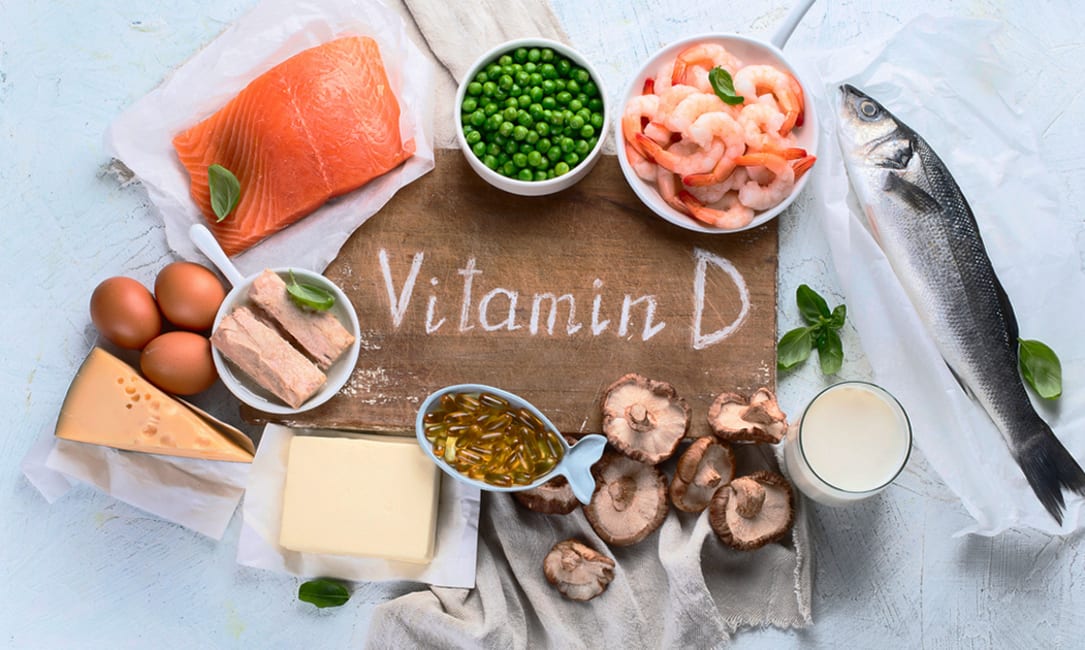Vitamin D and COVID-19 - Can Vitamin D Protect You During this Coronavirus Pandemic? Updated January 2021
Can vitamin D help against COVID-19? This article explains what you need to know about vitamin D and COVID-19.

The National Institutes of Health (last updated July 17, 2020) states there’s not enough evidence to show that vitamin D can prevent or treat COVID-19. That said, several publications and studies have suggested that maintaining adequate levels of vitamin D would seem potentially beneficial in fighting the COVID-19 infection. Let's dive into the evidence.
Vitamin D Deficiency Increases Your Risk for COVID-19 (Prevention)
Of those with a vitamin D level below 20 ng/ml (deficiency), 12.5% tested positive for SARS-CoV-2, compared to 8.1% of those who had a vitamin D level between 30 and 34 ng/ml (adequacy) and 5.9% of those who had an optimal vitamin D level of 55 ng/ml or higher.
Vitamin D and COVID-19 (Treatment)
• Vitamin D3 supplementation also requires additional vitamin K2 intake.
• The immunoregulating function of vitamin D is promising and might decrease the global epidemic mortality.
 |
| Causal loop diagram of the impact of vitamin D3 on the immune system |
Another study, published in the Irish Medical Journal (May 2020) showed that the calculated COVID-19 mortality rate from 12 European countries shows a significant (P = .046) inverse correlation with the mean 25(OH)D plasma concentration.
The Irish Longitudinal Study on Ageing (TILDA) published in April 2020, suggested that vitamin D deficiency could have serious implications for COVID-19. Results from the Irish Longitudinal Study on Ageing (TILDA), showed that vitamin D plays a critical role in preventing respiratory infections, reducing antibiotic use, and boosting the immune system response to infections.
A preprinted study published in May 2020, looked at Vitamin D levels and inflammatory markers in hospitalized COVID-19 patients in Germany, South Korea (S. Korea), China (Hubei), Switzerland, Iran, UK, US, France, Spain, Italy (Daneshkhah, MedRxiv 2020). Patients with the lowest Vitamin D levels were about 15% more likely to get severe COVID-19 and cytokine storm. Vitamin D3 plays a role in inhibiting the cytokine storm that causes viral infections to become lethal.
How Much Vitamin D Should You Take?
In the United States, an estimated 41 percent of adults are deficient in vitamin D. People with darker skin are at greater risk — 63 percent of Hispanic people and 82 percent of Black people have low vitamin D levels.
Other factors increase the risk of vitamin D deficiency, including age, limited sun exposure, obesity, and certain medical conditions.
The RDA (recommended dietary allowances) for vitamin D for men and women more than 50 years of age are 600 - 800 IU (15 mcg - 20 mcg) daily.
Your healthcare provider will measure the storage form of vitamin D, which is known as calcifediol. Anything under 12 ng/ml is considered deficient, and anything above 20 ng/ml is considered adequate.
Additionally, many believe that the recommended intake is far too low and that people need much more to reach optimal blood levels (Trusted Source).
Optimize Your Other Nutrients
Some researchers claim that fat-soluble vitamins work together and that it’s crucial to optimize your vitamin A and K intake while supplementing with vitamin D3 (Trusted Source, Trusted Source).
This is especially important for vitamin K2, another fat-soluble vitamin that most people don't get enough of (nih.gov). One can also take 150 to 200 mcg of vitamin K2 per day, as it works synergistically with vitamin D. The only concern is that if you are on Coumadin (anticoagulant), you have to discuss vitamin K2 with your doctor as it will interfere with Coumadin.
Magnesium — another important mineral often lacking in the modern diet — may also be important for vitamin D function (Trusted Source). This is because magnesium helps to activate vitamin D, as the enzymes that metabolize vitamin D in the liver and kidneys require magnesium. In fact, about half of those taking vitamin D supplements are unable to normalize their vitamin D levels until they take magnesium (BMC Med. 2013).
What Happens if You Take Too Much Vitamin D?
Vitamin D toxicity is extremely rare, but does occur with extreme doses. It is almost impossible to get too much vitamin D from sunlight or food.Vitamin D toxicity usually develops over time, since extra vitamin D can build up in the body. Nearly all vitamin D overdoses result from taking high amounts of vitamin D supplements.
Best Vitamin D3 and K2 Supplement Brands in 2021
Here are the best vitamin D3 and K2 supplements that you can buy today.
1. Now Foods Vitamin D3 & K2 (120 Veg Caps)
More than 3,000 customer reviews and a 4.7 out of 5 overall rating on Amazon.2. Vitamin D by Nature’s Bounty for Immune Support
- Vitamin D3 by Nature’s Bounty for Immune Support (2,000 IU) > Check Price on Amazon
- Vitamin D3 by Nature’s Bounty for Immune Support (5,000 IU) > Check Price on Amazon
- Vitamin D3 by Nature’s Bounty for Immune Support (1,000 IU) > Check Price on Amazon
Wrap-up
Do we have large randomised controlled trials to prove that vitamin D can combat COVID-19. Not at the moment.
Of course, the most important thing you can do to avoid infection with coronavirus is to prevent exposure by following the latest recommendations of the CDC and World Health Organization such as wearing face mask, social distancing and hand sanitisation. Also take steps to stay healthy, including getting adequate sleep and exercise and eating a healthful diet that includes adequate (but not excessive) intakes of essential nutrients, such as vitamins C and D.
For those with hypertension, please take steps to control your blood pressure as high blood pressure is associated with more severe outcome if infected.
Your own immune system, works best when fed right. As long as you are taking supplements under medical supervision and within a safe range, the risk is low but the potential benefit is high?






.png)

Comments
Post a Comment